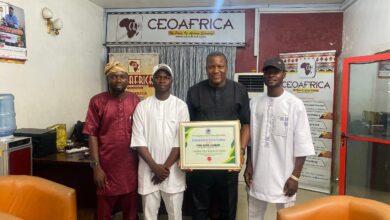SERAP sues Buhari, Others To Court Over Unlawful Telecoms Shut Down
A non-governmental organization, the Socio-Economic Rights and Accountability Project (SERAP), has filed a lawsuit seeking a permanent injunction to prevent President Muhammadu Buhari and the Minister of Communication and Digital Economy, Isa Pantami, from shutting down telecommunication networks in any part of the country.
SERAP has asked the Federal High Court in Abuja to determine whether the Buhari administration’s shutdown of telecommunication networks in any part of Nigeria is unlawful and a violation of the rights to access to correspondence, freedom of expression, information, and the press.
Read Also: APC won chairmanship, councillorship seats in Ekiti council election
SERAP also wants the court to rule on whether the shutdown of telecommunication networks in any part of the country violates the legality, proportionality, and necessity principles, as well as the rights to access to correspondence, freedom of expression, information, and the press.
The case has been assigned to Justice Ahmed Mohammed of Court 4, and a hearing date has been set for January 11, 2022.
The Nigerian Communications Commission is a defendant in the case (NCC).
“Large-scale shutdowns of communication networks are a form of collective punishment,” according to SERAP. Shutdowns have a chilling effect on participatory democracy, which depends on an engaged and informed citizenry capable of engaging with a variety of ideas.”
“The Buhari administration has constitutional and international legal obligations to enable Internet access for all, as Internet access is inextricably linked to the exercise of freedom of expression and information,” according to SERAP.
Read Also: SERAP wants court order to stop Buhari, others from shutting down telecommunications
“Access to information, the ability to exercise the right to freedom of expression, and the participation that the internet and telecommunication networks provide to all sectors of society are essential for a truly democratic society,” according to SERAP.




